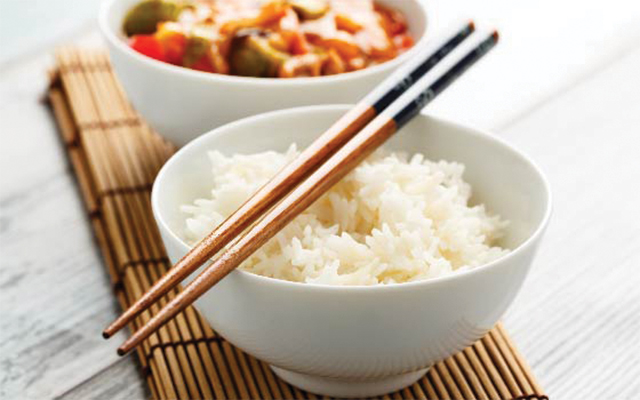However, exploring a new culture can come with the risk of inadvertently offending locals. Don't worry, we've got you. This guide will take you through some of the basics to make your group aware of before you travel to China.
Out and about with your school group in China

Avoid politically sensitive topics
Perhaps it goes without saying that your group should be made aware of some politically sensitive topics in China, which should definitely be avoided while you're there. Of course, these include Taiwan, Xinjiang and Tibet. It would also be advisable to avoid discussion of the Cultural Revolution and the Tiananmen Square incident (although, to really understand modern China, these are important topics to cover with students in advance of your trip).
We'd also advise against making comparisons between China and Japan, due to the long rivalry between the two countries.
Generally safe topics of conversation include China's ancient culture and excellent education system.
Punctuality is a virtue
If you have visits booked or you'll be meeting a local guide, please do try to be punctual, as this is seen as a mark of respect to others and is really important in Chinese culture. Of course, we'll plan your itinerary to ensure you have plenty of time to get to where you need to be.
PDAs are a no-no
Public displays of affection are frowned upon (hopefully you won't be prising teenage lovebirds apart on your school trip to China, but it's always worth making students aware of this).
And it's important to know that, in general, the Chinese are uncomfortable with strangers touching them – shaking hands as a greeting is fine, but just be careful to avoid things like back slaps, hugs or arms around shoulders.
Avoid emotional outbursts
And, as is the case across much of Asia, getting angry or emotional in public is a huge no-no in China. It can cause everyone involved to lose face and that's massive in Chinese culture.
Hopefully, this isn't really something that's likely to come up on your school trip to China, but if you do end up in a frustrating situation with anyone (local or a member of your group), it would be much better to take them aside and discuss it privately. And, really, what a great lesson for the students (and adults) in how to handle conflict well.
Food and drink

One huge difference that your school group will encounter in China is that everything (other than soup) is to be eaten with chopsticks. Honestly, it's a great idea to get everyone in your group practising their chopstick skills before you go, because it will help them feel so much more confident when it comes to mealtimes.
Know your chopstick etiquette
Other than making sure you can actually use them, it also pays to know chopstick etiquette. The basic rules include:
• Don’t twiddle your chopsticks
• Don’t lick your chopsticks
• Don’t stir up your food with your chopsticks
• Don’t tap your bowl with your chopsticks
• Don’t gesture with or point your chopsticks at anyone
And, most importantly, do not stick your chopsticks upright in the centre of your bowl as this symbolises death.
Should we clear our plates in China?
When it comes to mealtimes, generally, you should try to eat pretty much everything that you’re offered. However, when you're done, try to leave a little bit on your plate, as eating every last crumb indicates your host hasn't been generous enough (a big no-no in China).
Gifting

If you've had a particularly great guide, your group might want to leave them with a little thank you gift.
When giving (or receiving) gifts in China, you should always use both hands. And when wrapping them, try to use a festive colour such as red, and avoid black and white.
It’s considered rude to open a present in front of the gift giver, so don’t be offended if the person waits until you leave to open the present.
Inappropriate gifts include clocks, which symbolise death, and sharp things such as scissors, which symbolise severing ties. If you'd like to give someone a present, something typical of your country or region usually goes down really well, in our experience. And, actually, that goes for pretty much anywhere in the world.
What's the dress code in China?
One thing you'll definitely be asked about is what kind of clothing students should pack for your school trip to China.
Now, you'll find most modern Chinese wear pretty Western-style clothes, so generally just your normal wardrobe will work fine.
However, it's worth bearing in mind that the Chinese do tend to dress a little more conservatively than we do in the West.
So, we'd advise just letting your students know that they should avoid showing too much skin where possible - i.e. t-shirts and knee-length shorts and skirts/dresses will be absolutely fine, but vest tops, Daisy Dukes (showing our age) and mini skirts aren't really appropriate. As that probably aligns with school policy on dress code for school trips, it shouldn't be too big a deal for them.
Meeting people

The final thing really to be aware of before your school trip to China is what to do when you meet new people.
There's a bit of a preconception that you need to bow when meeting people in China - that's not really necessary and a handshake is absolutely fine. You can say 'hi' or if you want to try a bit of Chinese you could say 'ni hao' (or 'nin hao' if speaking to an older person).
Speaking of elders, it's really important to greet the oldest or most senior person first in China. And, like the rest of Asia, you should address someone by their title and family name unless they say you can call them by their first name.
This shouldn't be too difficult for your students to understand - after all, that's probably how they're supposed to address you as their teacher, right (unless you work in a very modern school, of course).
Just remember, though, family names usually come first in China. So, as an example, the Chinese President, Xi Jinping's family name is Xi - and you would address him as President Xi.
There’s a very strict etiquette surrounding introductions in Chinese culture. If someone is making introductions, don't introduce yourself, as that will be considered very rude.
Normally, the people of a lower rank or younger age are introduced first to the more senior/older person. And men are usually introduced to women, rather than the other way around.
One last thing to be aware of when visiting China on a school trip - be prepared to answer what you might consider to be personal questions on topics such as your marital status, family, age, job or even income. These aren't meant in a nosey way - the person asking them will simply be trying to establish common ground with you, so embrace it.
Ready to start planning your school trip to China?
Whether you're ready to crack on and get a quote, or want to chat about some of the options available with our school travel experts, please don't hesitate to get in touch today. We can't wait to work with you on your Chinese adventure.